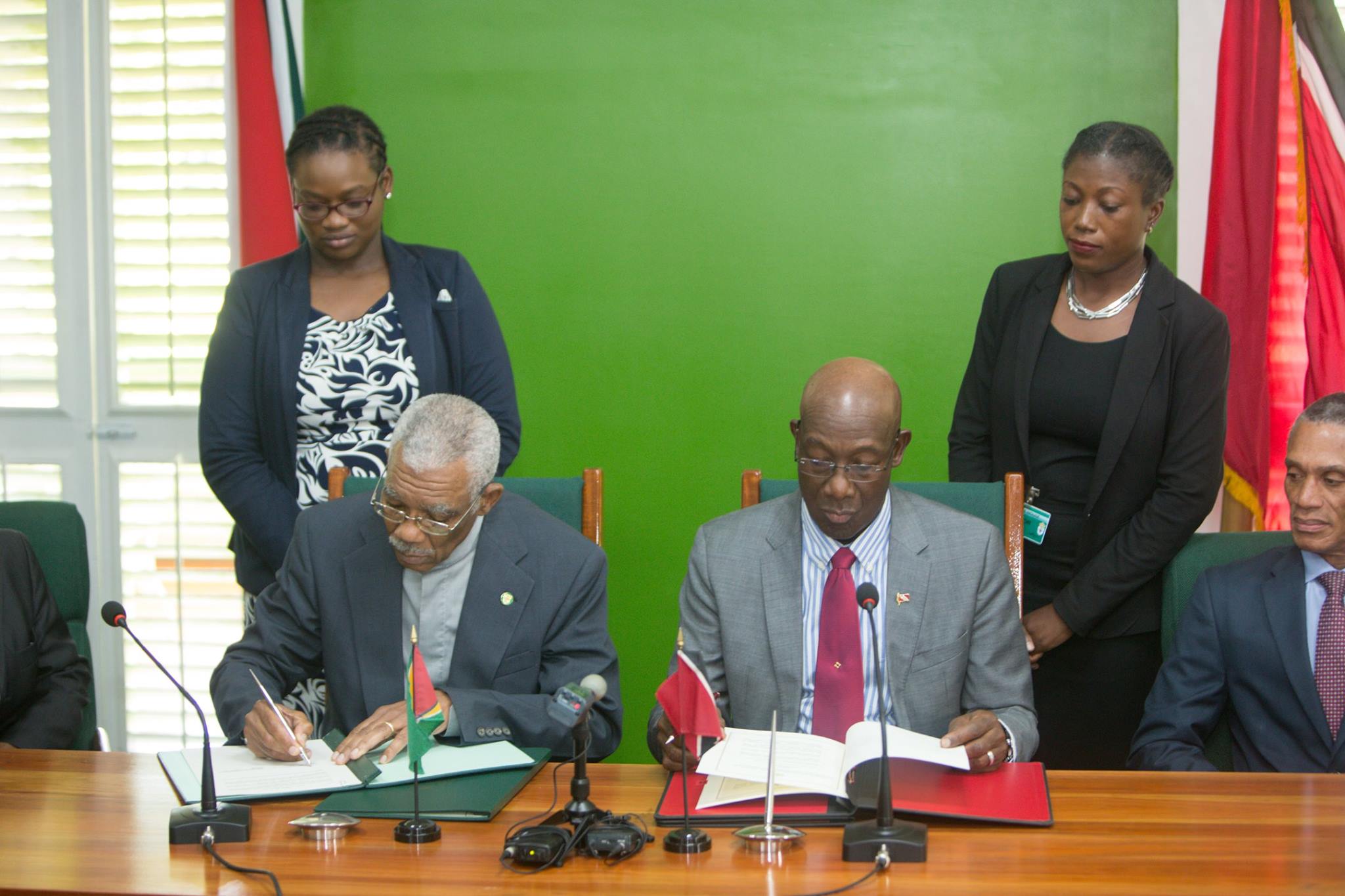
The Governments of Guyana and Trinidad & Tobago recently signed a memorandum of understanding between the two countries to advance, in particular, energy sector cooperation. This development inspired, as usual, some mixed views – some persons critiqued this move by the Government of Guyana especially, while some others saw this as a positive development to renew economic relations between the two countries.
First of all, there is absolutely nothing in the MoU between the two Governments to harm the local Private Sector businesses in Guyana. Rather, the Private sector actors need to now capitalize on this arrangement in order to exploit the advantages presented herein – through collaboration and strategic alliances with the Trinidadian players in order to build local capacity for the oil and gas sector: Trinidad & Tobago has over one hundred years of experience in the energy sector.
As a matter of fact, this analyst was the first to have recommended that the Government of Guyana and Trinidad & Tobago sign a MoU in relation to energy sector co-operation between the two countries in the spirit of CARICOM. To this end, readers might recall that an article was featured since in February, 2018, in this respect wherein it stated by this author that:
“Final point to note is that, the announcement of oil discovery was made since in 2015. With respect to training of Guyanese to work in the sector and specific oil related training, through the spirit of CARICOM and a Memorandum of Understanding between the Government of Guyana and the Government of Trinidad & Tobago, it would have been wise to identify a number of Guyanese to be sent to T&T to receive hands on technical training in their oil & gas sector. Had this been pursued, 2015 -2020 will have been five years of technical training and real time exposure to the oil & gas operations for Guyanese nationals.”
For ease of reference see full article here: https://newsroom.gy/2018/02/03/the-economy-considerations-for-guyanas-draft-local-content-policy-going-forward/.
It is unfortunate, however, that Trinidad had to be in a state of “desperation” before they found it fitting to establish a memorandum of understanding with Guyana on energy sector cooperation. This, as this analyst had previously and the first to point out, should have been done a long time ago, since in 2015 when the first declaration was made that Guyana has a large deposit of recoverable crude. Notwithstanding, despite whatever circumstance it had to take, it has come to fruition and Guyanese businesses and local firms need to exploit this opportunity, rather than be critical of it.
Overview of the CSME
The Caribbean Community and Common Market (CARICOM) was launched in 1973 by the smaller, largely English-speaking countries. The integration plan was intended to coordinate and enhance the collective economic and social development of 15 countries. The achievement of the complete economic integration goals now sits with the effective implementation and/or enforcement of the Caribbean Single Market Economy (CSME) (CRS Report for Congress, 2008).
The key elements of the CSME as proposed in the revised treaty of Chagauramas are as follows:
- free movement of goods and services (Common Market)
- free movement of capital
- rights of establishment
- free movement of labour
- common trade policy
- economic, fiscal and monetary harmonisation
- harmonisation of policy with respect to competition, consumer protection including sanitary and phytosanitary measures; dumping and subsidies
- support to disadvantaged countries, regions and sectors
- other policy harmonisation (transportation policy, company policy, intellectual property, banking and securities, standards and technical regulations, commercial arbitration).
Trade is essential for Caribbean countries’ development and poverty reduction. Caribbean countries face a rapidly changing environment for their exports, which presents both opportunities and challenges for economies highly dependent on external markets.
Key policy recommendation – put forward by the World Bank: Caribbean Growth Forum
There is considerable potential for boosting trade and accelerating growth through deepening trade integration with traditional partners and exploring opportunities offered by new growth poles. Improving trade facilitation environment and the connectivity would have a major impact in the Caribbean.
Improving the business environment and investment climate would be essential to close the productivity and competitiveness gap with international competitors.
Easing supply side constraints through innovation enhancement, and improvement of access to key services (electricity, transport and telecommunications) would have a major impact on the productivity of Caribbean firms.
And, efforts to reduce poverty should focus on policies that improve the livelihoods of the poor, without necessarily discriminating between production for export or the domestic market.







